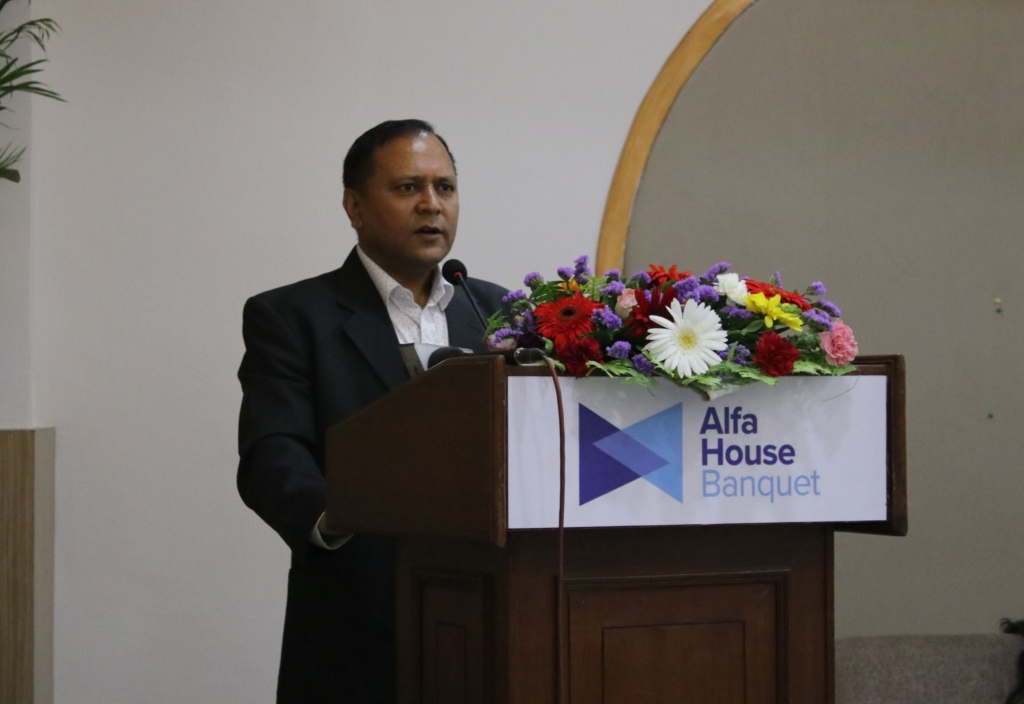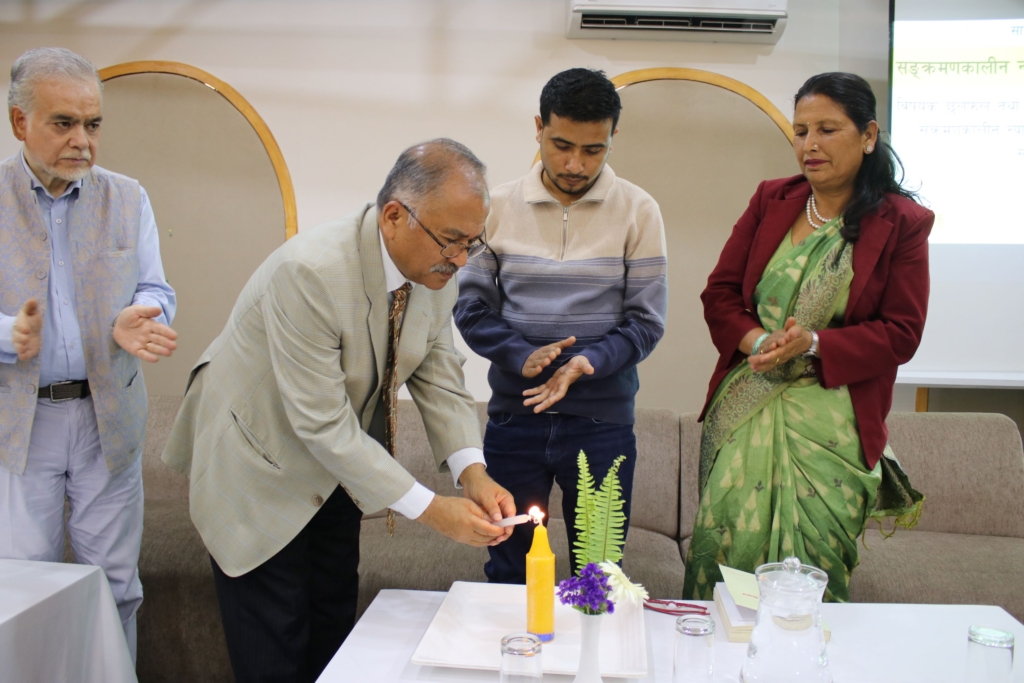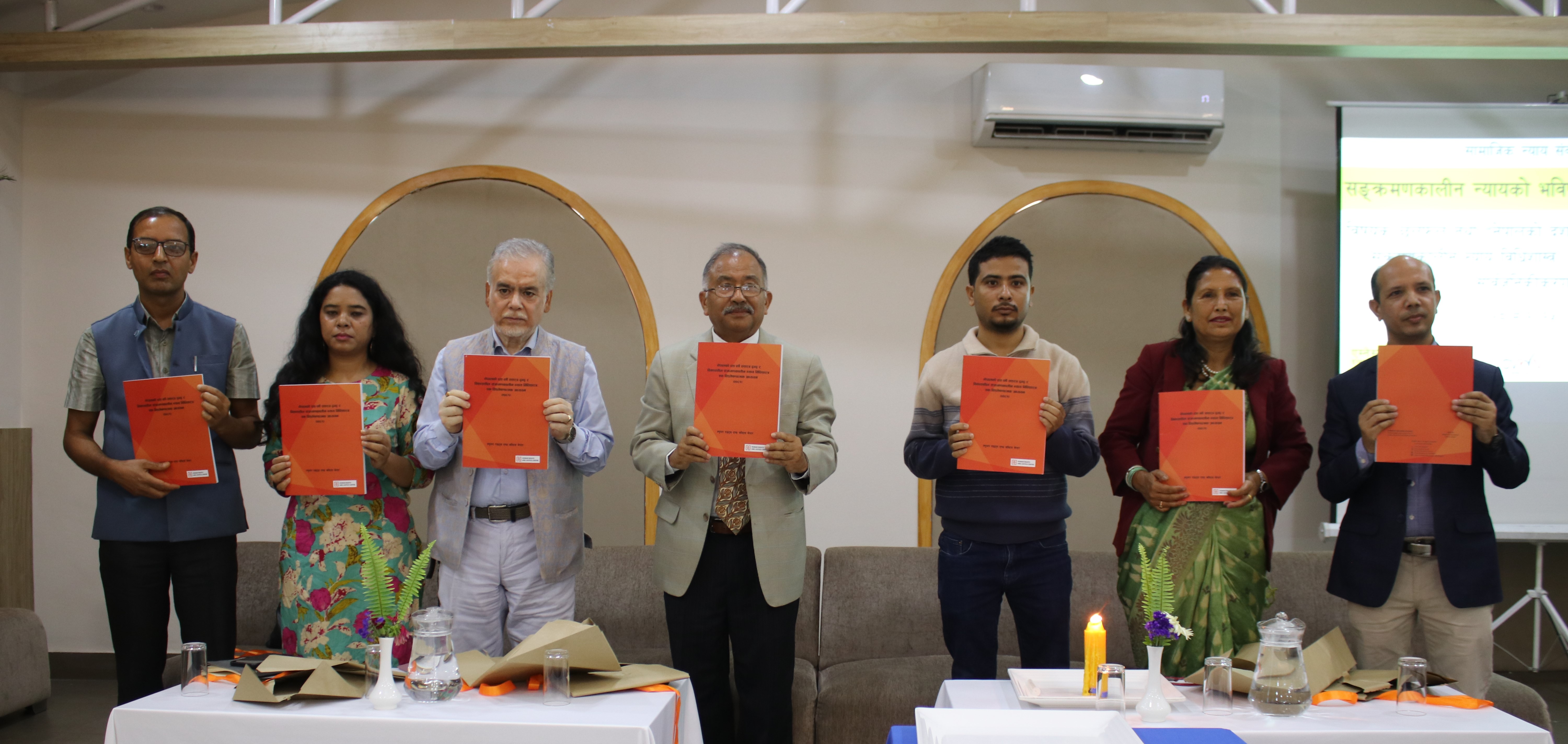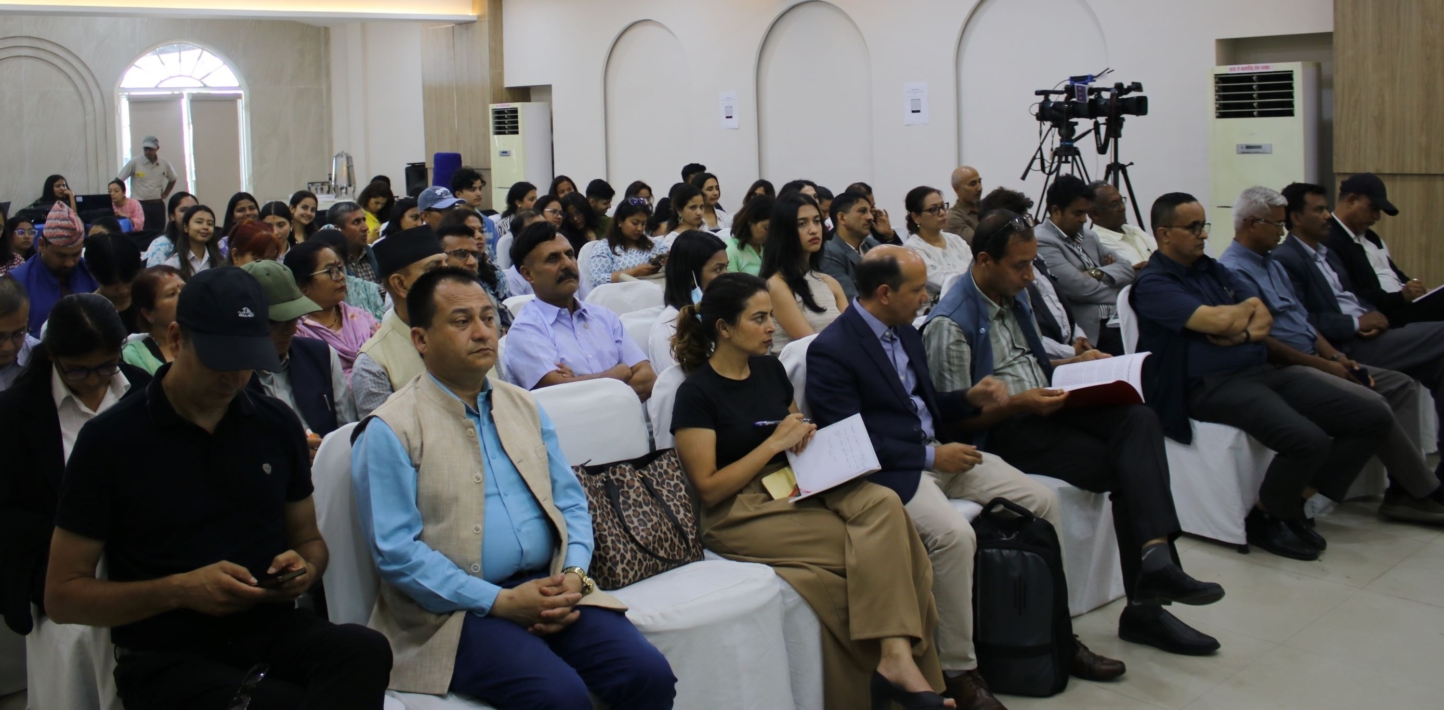On 28 May, Amnesty International Nepal, in partnership with the Conflict Victim Women National Network (CVWN) and the Human Rights and Justice Centre (HRJC), organised a significant dialogue titled “The Future of Transitional Justice: Certain or Uncertain?”. The event brought together conflict victims, legal experts, civil society leaders, and mediapersons to critically examine the recent development as well as the prolonged delays in Nepal’s transitional justice process where speakers emphasised the urgency of a victim-centric, inclusive, and human rights-based approach.
It has been over eighteen years now since the Comprehensive Peace Accord (CPA) between the then CPN (Maoist) and the Government of Nepal was signed, yet key promises on delivering truth and justice to the tens of thousands of victims of conflict remain largely unmet. Victims and human rights groups have long voiced their frustration at the lack of political commitment, transparency, and meaningful participation in the process. This frustration has reached a new height with the recent appointments to the Truth and Reconciliation Commission (TRC) and the Commission of Investigation on Enforced Disappeared Persons (CIEDP). These appointments have been met with fierce resistance by victim groups and civil society organisations for excluding the victims from the consultation process and disregarding their concerns. They have alleged the appointments as based on “political power-sharing and nepotism” through “an unjust, non-transparent, coercive, and untrustworthy process”.
The dialogue began with the opening remarks by Nirajan Thapaliya, Director of Amnesty International Nepal, who underscored the importance of placing victims in the centre in the justice process. Expressing disappointment over the government’s neglect over the years and the recent appointments, he stated, “Victims, the key stakeholders in this process, have always been sidelined. For the past two decades, we’ve engaged in countless dialogues and consultations, and yet the hope for justice remains elusive—almost non-existent.”

He reiterated that the process of transitional justice, which lacks the meaningful participation, consent, and leadership of victims, goes against the globally recognised principle of “Nothing about us without us”. He also noted the symbolic significance of holding such an important discussion on 28 May, a day when the Amnesty International’s movement for the release of prisoners of conscience and for upholding human rights for all began in 1961.

A key highlight of the programme was the launch of a publication titled “नेपालको दश वर्षे सशस्त्र द्वन्द्व र विकासशील सङ्क्रमणकालीन न्याय विधिशास्त्रः एक विश्लेशणात्मक अध्ययन” (Nepal’s Ten-Year Armed Conflict and the Emerging Jurisprudence on Transitional Justice: An Analytical Study), co-authored by Senior Advocate Raju Prasad Chapagai and Advocate Kapil Aryal. The book offers a detailed legal analysis of Nepal’s transitional justice landscape, offering a brisk overview of 51 landmark Supreme Court decisions. It explores how jurisprudence in this area has evolved, identifies legal and institutional gaps, and calls for a reform process that keeps victims at the centre.

During the discussion, Advocate Aryal, who also serves as HRJC’s technical advisor, emphasised that transitional justice can only move forward when victims are recognised as key decision-makers and rights-holders. In addition, Senior Advocate Chapagain highlighted the imbalance in scrutiny between the judiciary and the legislature, pointing out that the latter’s role in the transitional justice process has received insufficient attention. The book, he said, aims to support strategic efforts for justice, truth, and accountability by providing a nuanced analysis of Supreme Court rulings.
The event was part of Amnesty Nepal’s Social Justice Dialogue Series, launched in 2023 to foster meaningful discourse on social justice and human rights. The keynote address was delivered by former Chief Justice of Nepal, Hon. Kalyan Shrestha, who has played a central role in shaping Nepal’s transitional justice. He outlined the evolution of the legal framework—dwelling on how the Disappeared Persons Enquiry, Truth and Reconciliation Commission Act, 2071 (2014) was promulgated in a much weaker and compromised shape as against the repeated directives from the Supreme Court—and expressed dismay and pain at the continued lack of progress. “Justice is not just a legal right; it is a matter of empathy. Justice is not earned through authority, but through trust,” he said, urging stakeholders to build credible, transparent, and victim-friendly truth-seeking mechanisms.
Keynote address by former Chief Justice of Nepal Hon. Kalyan Shrestha.
Member of Parliament Maina Karki, herself a conflict victim, spoke about her commitment to advocating for victims in Parliament. She acknowledged the long and painful journey for justice, marked by the deaths of many victims who never received redress, and stressed the importance of continuing the struggle.
CVWN Chairperson Gita Rasaili expressed strong concern over the TRC’s recent call for complaints related to sexual violence. She noted that the move was made without consulting survivors or addressing key issues such as privacy, safety, and dignity. Former Amnesty Nepal Chairperson Charan Prasai also criticised the government for repeatedly diminishing the suffering of victims through politically motivated appointments to the commissions.

Victims present at the event—including Suman Adhikari, Surendra KC, Sushila Chaudhary, Shreejana Shrestha, Gopal Bahadur Shah, and Rupesh Shah—shared their deep dissatisfaction with the government’s inaction. They warned that if their voices continued to be ignored, they would be forced to take to the streets. Suman Adhikari, whose father was killed during the conflict, strongly condemned recent decisions by the government and political parties, saying that the process has made a mockery of victims’ pain.
In closing, Amnesty Nepal Chairperson Bipin Budhathoki reiterated the urgency of action, pointing out that while political leaders may see 20 years as insignificant, victims have been waiting for truth and justice for far too long. He reaffirmed Amnesty’s unwavering solidarity with the victims and its continued commitment to supporting them until justice is delivered.
The dialogue concluded with renewed calls for collaborative action involving victims’ networks, civil society, the judiciary, and the media to push Nepal’s transitional justice process out of stagnation and toward genuine accountability and reform.


